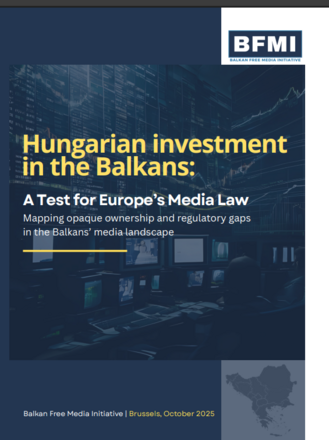
Between 2017 and 2022, Hungarian investors with ties to Viktor Orbán quietly took control of media outlets in Slovenia and North Macedonia, exposing a serious weakness in Europe’s defenses against media capture. Using opaque ownership structures, shell companies, and nontransparent advertising contracts, these investors masked their involvement and shifted funds across EU and non-EU borders, often outside regulatory scrutiny. Investigations later revealed self-dealing contracts with inflated prices and phantom companies, suggesting possible money laundering.
Although the direct editorial impact was limited, these takeovers distorted media markets and favored outlets aligned with ruling parties, marginalizing independent journalism. The cases show how fragile democratic institutions in the Balkans make the region particularly vulnerable to foreign influence, but they also highlight a Europe-wide risk.
Even with the European Media Freedom Act (EMFA) now in place, current safeguards are insufficient to detect or prevent such schemes. The report urges the EU to tighten ownership transparency, strengthen scrutiny of media financing, and monitor cross-border investors more effectively. Without decisive action, similar tactics could spread elsewhere, eroding media trust, weakening democratic resilience, and allowing covert political and financial interests to shape Europe’s information landscape.
Tags: Western Balkans Media capture Media freedomThe content of this article can be used according to the terms of Creative Commons: Attribution-NonCommercial 4.0 International (CC BY-NC 4.0) . To do so use the the wording "this article was originally published on the Resource Centre on Media Freedom in Europe" including a direct active link to the original article page.

